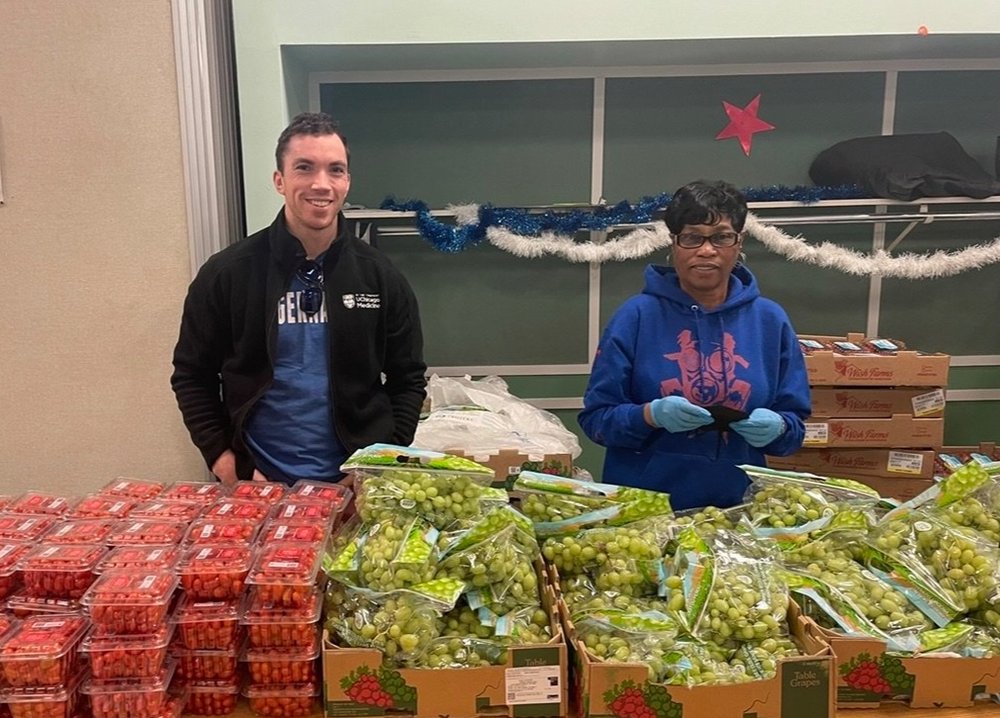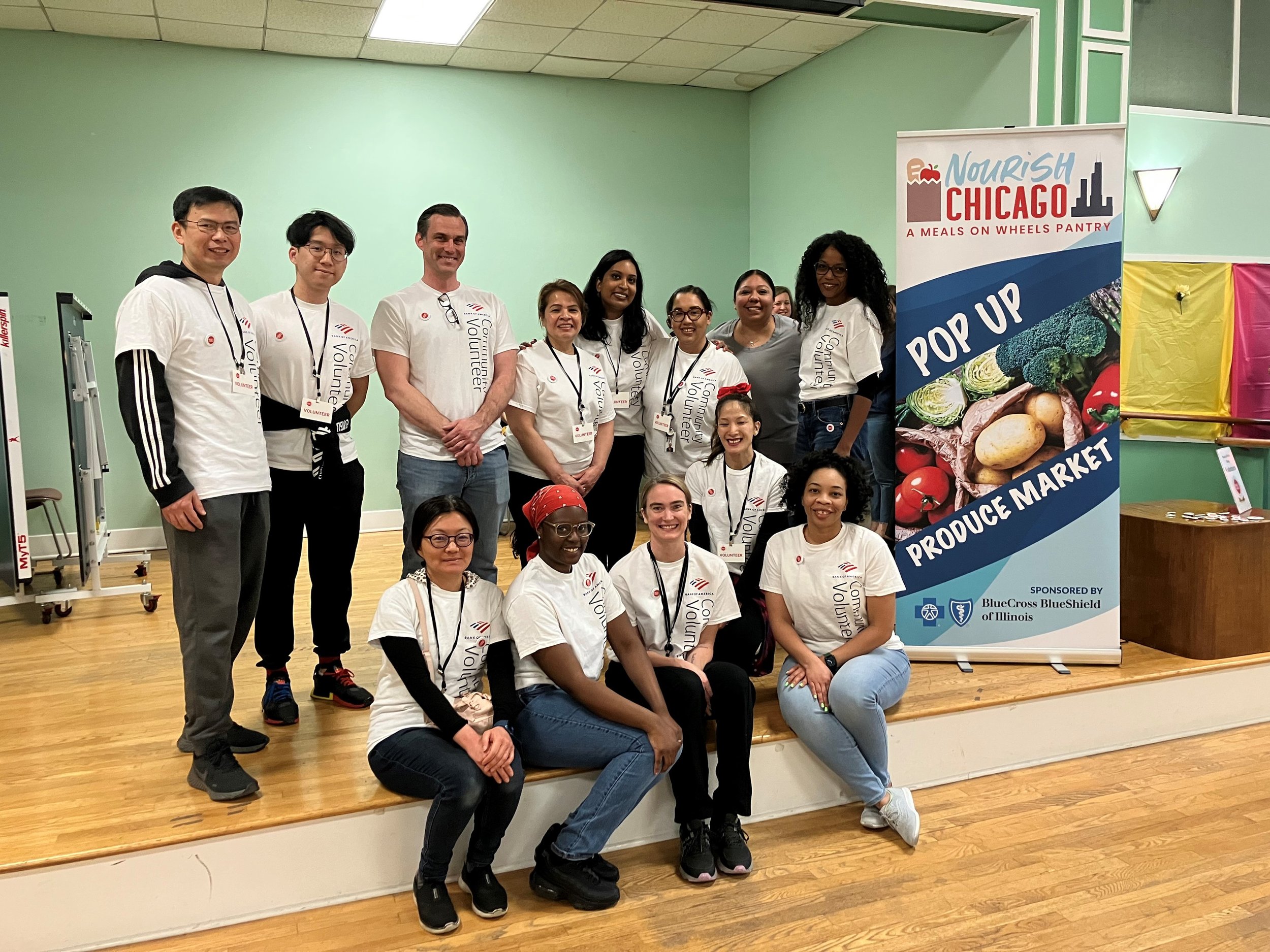
About Us
Since 1987, Meals on Wheels Chicago has Proudly Provided Food to our Neighbors in Need
Over the years, Meals on Wheels Chicago has expanded and evolved our programs and services to meet the changing needs of those we serve. It is our shared responsibility to help our neighbors build healthy, secure lives, and strengthen the communities they call home.
OUR VISION
Meals on Wheels Chicago envisions a community in which all basic needs are met and barriers to achieving independence are eliminated. We achieve this by raising both funds and awareness to support home meal delivery to eligible senior citizens and people with disabilities and a food pantry for seniors.
OUR MISSION
The mission of Meals on Wheels Chicago is to ensure that Chicago seniors and individuals with disabilities benefit from programs that improve their quality of life and maximize independence.
This Year By the Numbers
4.7 million meals provided through meal delivery and pantry programs this past year.
5 tons of food distributed at every Nourish Chicago Pantry.
22,000 seniors helped this past year, now reaching twice the number of seniors as we did a year ago.
17,000 meals provided to dogs and cats in the Nourishing Pets Program.
2,882 volunteer hours have been performed, providing services and social connection to seniors.
Our Story
Non-profits help fill the gaps in areas where federal and state funding falls short. In 1987, a group of community leaders, concerned citizens, and the City of Chicago joined together to address the unmet nutritional needs for homebound seniors. For Thanksgiving in 1988, we delivered our first holiday meal to 1,218 homebound seniors. Now in our 36th year, the meal program serves more than 4.7 million meals per year.
Since 1987, Meals on Wheels Chicago has been working every day to end hunger in our community. Read on to learn about expanded response to hunger, social isolation, and wellness.
1988
Holiday Meals Program (HPM): The Holiday Meals Delivery Program for Chicago’s Senior Citizens addressed unmet nutritional needs on six federal holidays, delivering meals to homebound seniors over the age of 60. In doing so, Meals on Wheels Chicago provided clients with nutrition and a greater measure of independence to help stabilize their home environments.

1990
In the early 1990s, Meals on Wheels Chicago’s programming expanded to include the funding of an Assistive Technology Program through the Mayor’s Office for People with Disabilities. Assistive Technology is the provision of home modifications, personal devices, or equipment that will assist an individual with disabilities to become more independent.

2013
In 2013, Meals on Wheels Chicago launched the Home Delivered Meals for Individuals with Disabilities Program (HDMID). Modeled after the Holiday Meals Program, this new program focused on alleviating hunger for individuals with disabilities under the age of 60 who are unable to obtain meals from another source, shop, or prepare meals for themselves.

2020
COVID-19 created a hunger crisis unlike anything we have seen in our history and propelled Meals on Wheels Chicago to develop an ambitious and comprehensive strategic plan. The COVID-19 pandemic highlighted the risk of hunger for hundreds of thousands of our neighbors, and after a 67% increase in demand for the program, Meals on Wheels Chicago aligned the strategic plan with the goals of the Older Americans Act to address the overall health and wellbeing of seniors in the community.

2021
In 2021, Meals on Wheels Chicago launched the Fruit Program that delivered a bag of fresh fruit to every client enrolled in the home meal delivery program to provide an extra source of nutrition and healthy snack options. This program was paused to focus on providing a wider variety of foods once the Senior Centers reopened, which paved the way for the Nourish Chicago Pantry to begin.

2022
In response to the increased cost of food, limited transportation to grocery stores, and a fixed income that limits senior’s access to fresh produce and essential items, we launched the Nourish Chicago Pantry.
The Nourish Chicago Pantry operates in the Central West City Senior Center as a client-choice model, much like a grocery store. This model fosters dignity and provides fresh, nutrient-rich groceries and high-quality pantry items that allow for autonomy as seniors select the food they enjoy while also reducing food waste.
In 2022, we also launched our new strategic plan. Scroll down the page to learn more.

2023
Pop Up Produce Markets launched in 2023 to address the reduction in SNAP benefits and the ongoing heightened cost of food. Meals on Wheels Chicago expanded the Nourish Chicago Pantry by adding Pop Up Produce Markets once per month to each of the City of Chicago Regional Senior Centers. These Pop Up Produce Markets ran from March to August of 2023 and helped address the needs of an additional 11,500 seniors.

Strategic Plan
-
The Issue: One in 6 seniors is food insecure, and studies have shown that persistent hunger and malnutrition lead to chronic health issues that can result in long-term hospitalization or premature institutionalization.
Our Strategy: By reducing food insecurity with nutritionally balanced meals, our programs offer seniors the tools they need to maintain healthy, self-sufficient, and dignified lives in the comfort and familiarity of their own homes.
Our Tactics: These programs include Home Meal Delivery, Nourish Chicago Food Pantry and Pop Up Produce Markets, all of which foster dignity and provide fresh, nutrient-rich groceries and high-quality pantry items to tens of thousands of Chicago’s seniors.
-
The Issue: The US Surgeon General has raised the alarm that disconnection fundamentally affects our mental and physical health. Social isolation can lead to depression and has been shown to be as deadly as smoking 15 cigarettes a day.
Our Strategy: Meals on Wheels Chicago programs offer opportunities for socialization and companionship, easing pangs of loneliness and making clients’ days a little brighter.
Our Tactics: For seniors with pets at home, we offer free animal wellness packs for cats and dogs with food, preventative medicine, and toys. Pets provide emotional support, routine, and opportunities for exercise and socialization - all crucial components of a healthy and independent lifestyle.
Additionally, our Senior Center Programming supplements the City of Chicago’s congregate lunches at the six main senior centers. This provides lunch and a social activity for seniors (such as Bingo), as well as meaningful volunteer opportunities for individuals and corporate groups. Corporations also provide funding for an additional take-home meal for later that evening. While we do not have an official budget allocation for this program, we solicit restricted gifts from participating corporations and organize these events ad hoc.
Lastly, during the pandemic, Meals on Wheels Chicago added two holidays, Valentine’s Day and Juneteeth, to the Holiday Meal Program for seniors who picked up meals from the centers.
-
The Issue: After paying for the basic fixed expenses, seniors living at or below the poverty level have only $47 per week for essentials such as groceries, toiletries, cleaning supplies, and clothing. In addition to not being enough for basic health and wellness items, this puts a constant undue stress on Chicago’s seniors.
Our Strategy: Meals on Wheels Chicago is committed to improving the overall health and wellbeing of our clients. This goes beyond meal delivery and considers the other basics and wellness items that make life more comfortable. All Meals on Wheels Chicago programs ultimately offer clients more financial flexibility to pay for essentials, such as housing, medication, and clothing.
Our Tactics: Wellness Packs, which include toiletries, cleaning supplies, and other items and are distributed for free at the Nourish Chicago Pantry, addressing seniors’ needs while providing an opportunity for corporate engagement. Companies can sponsor the cost of Wellness Packs as well as bring a team of volunteers together to assemble them.
Our Love Notes addresses emotional wellness. It provides a touchpoint for clients so they know someone in the community is thinking and cares about their wellbeing. This program allows us to scale volunteer engagement from individuals to national-level corporations. In addition, volunteer hours help us in the application of grants.
The Power of Community
The success of Meals on Wheels Chicago depends on the generosity and partnership of many. We are incredibly grateful to those who support our mission. The expansion of our programs is driven by private philanthropy and in-kind contributions.


